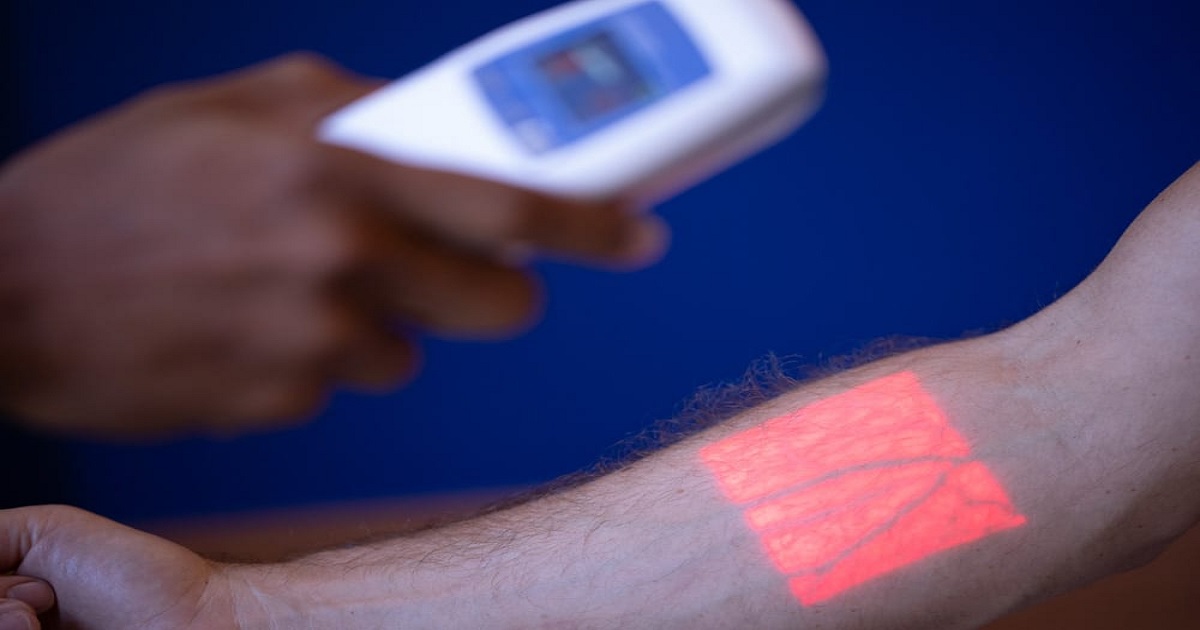
Health Technology
Article | September 12, 2023
Healthcare leaders are embracing the benefits of the cloud and software as a service (SaaS) after the pandemic challenged them to adapt and innovate like never before. 66% of them expect to move their technology infrastructures to the cloud this year – a number that is set to rise to 96% by 2024 [1]. Yet moving to the cloud is more than just a technology transformation. It’s an organizational transformation. Through cloud-based platforms and solutions, healthcare systems can begin to unlock clinical and operational insights at scale while speeding up innovation cycles for continuous value delivery.
Integrating data across the care continuum
In many ways, COVID-19 catapulted healthcare into the future. The pandemic created a new urgency for healthcare leaders to expand their virtual care offerings as a way of connecting with patients beyond the walls of the hospital. At the same time, they wanted the flexibility to scale up or down without large upfront capital expenditures. Effective crisis management also required the rapid exchange of patient information across systems and care settings. Thanks to the flexibility of pay-as-you-go cloud-based services and solutions, healthcare providers were able to quickly scale up digital health technologies to meet new demands. As a result, the acceptance of cloud has increased remarkably [2].
Keeping patient data secure and compliant
As healthcare leaders embark on this journey to the cloud, data protection is a critical consideration. Data processing in healthcare must comply with rigorous standards, whether it is HIPAA in the US or GDPR in the EU. Unfortunately, healthcare organizations also remain a top target for data breaches, calling for additional data security protection measures [3].
While the need for data security and regulatory compliance has historically motivated healthcare organizations to keep data on premises, today there is a growing awareness that moving to the cloud can in fact be the better road to travel. In fact, 60% of healthcare leaders now cite security as one of the top benefits of the cloud [4]. When healthcare organizations rely on their own data centers, they are responsible for security from end to end, which can become prohibitively complex and time-consuming as IT infrastructures expand over time. Cloud-based services and solutions can reduce dependency on local hardware to store sensitive data while automated software updates keep systems current.
Turning data into insights at scale at the point of care
Working from these foundations, the next big opportunity in healthcare is to capture the insights in the data that we are beginning to connect and integrate. This is where the cloud is also turning into a vital enabler, with its powerful computing resources and advanced machine learning capabilities, offered as microservices. These microservices provide the building blocks to develop new digital solutions that, once validated and approved, can be deployed at scale to help improve clinical outcomes and operational efficiency.
Enabling rapid experimentation and continuous value delivery
Embracing the cloud also changes the very nature of innovation in healthcare.
Healthcare-compliant cloud platforms offer a flexible foundation for rapid development and testing of digital applications. Cross-functional teams working in short and agile cycles can put new digital applications into the hands of physicians or patients more quickly, and then add new or improved features and functionalities as they gather additional user feedback. That means healthcare organizations get to innovate faster. And in smaller, more digestible increments.
Moving to the cloud is not all or nothing
Of course, none of this is to suggest that moving to the cloud is like switching a button. It’s a complex and multi-year journey for most of our customers. And it’s quite a journey for Philips, too. Any organization that has accumulated a large number of legacy systems and infrastructures over the years will have to manage a hybrid architecture during their journey to the cloud [5].
Read More

Health Technology, Digital Healthcare
Article | August 16, 2023
As medical science has improved rapidly, life expectancy around the world also has risen. Still, as longevity increases, healthcare systems are facing a growing demand for advanced services, increased costs, and a struggling workforce to meet various requirements of patients. Demand is driven by many unstoppable forces: a shift in lifestyle choices, shifting patient expectations, population aging, and the never-ending cycle of innovation are a few among others.
Challenges Faced by the Healthcare Industry
According to Mckinsey, one in four people in North America and Europe will be over the age of 65 by 2050. This shows that, soon, the healthcare industry will have to deal with a larger number of patients with more complex requirements. Catering to these patients is expensive and requires health systems for providing long-term focused and proactive care. To remain sustainable, healthcare systems need major transformational and structural changes.
The industry also needs a larger workforce because according to the World Health Organization (WHO), globally there is a shortfall of approximately 9.9 million nurses, physicians, and midwives. Apart from attracting, training, and retaining these healthcare professionals, you also have to ensure that their time and effort add value to patient care. Utilizing the solutions powered by modern technologies, such as Artificial Intelligence (AI) in the healthcare industry, will add perfection and more value to human efforts.
AI in the healthcare industry has the potential required to transform and revolutionize healthcare by addressing the challenges in the industry mentioned earlier. AI can better the outcomes, improve efficiency, and augment productivity in healthcare delivery. This article takes an in-depth look at the impact of AI in healthcare.
Impact of AI in the Healthcare Industry
In the coming years, AI in the healthcare industry will improve the day-to-day life of healthcare practitioners, augment the patient experience, improve care delivery, and can even facilitate life-saving treatments and revolutionize the industry. Additionally, AI will improve population-health management, operations, and strengthen innovations.
According to Statista, the global AI healthcare market will increase to more than US$28 billion by 2025. Here is a detailed look into the areas where and how AI in the healthcare industry will be impactful.
Chronic Care Management
Chronic diseases, such as cancer, diabetes, kidney diseases, are the leading cause of disability and death in the US and the main drivers of the country’s annual health cost. Effectively managing various chronic diseases is an overarching and long-term process. But with the help of the right tool, healthcare providers can meet the needs of these patients without delay.
Artificial intelligence tools in the healthcare industry can help healthcare providers overcome the complexities of chronic disease management and make it more effective and provide quality treatment. AI in the healthcare industry is increasingly being leveraged by organizations to improve chronic disease management, enhance patient health, and drive down costs, which will also eventually result in data-driven and personalized care. AI in the healthcare industry is expected to move the industry toward proactive care delivery from a reactive one and lead the industry to provide more individualized treatments. This is just one of the ways AI in the medical industry is going to revolutionize chronic care management in hospitals.
Care Delivery
Artificial intelligence in the healthcare industry is changing the way care is delivered; it is expected to make healthcare more efficient, accurate, and accessible. Reducing costs and improving health outcomes are the values health systems and hospitals are trying to deliver to patients every day. Hospitals are increasingly incorporating technologies, which are powered by the use of AI in healthcare to meet the challenge.
According to the American Hospital Association (AHA), AI in the healthcare industry has unlimited potential to solve most of the vexing challenges in the industry. They identify AI use cases in the healthcare industry in four broad areas, which are administrative, operational, financial, and clinical areas.
Administrative Use Cases for AI in the Healthcare Industry
• Admission procedures
• Appointment scheduling
• Customer service responses
• Discharge instructions
• Hiring and orientation protocols
• Licensure verification
• Patient check-in procedure
• Prior authorizations
• Quality measure reporting
Operational Use Cases of AI in the Healthcare Industry
• Inventory management
• Materials management
• Supply chain management
• Facilities management
Financial Use Cases for AI in the Healthcare Industry
• Billing and collections
• Claims management
• Insurance eligibility verification
• Revenue cycle management
Clinical Use Cases of AI in the Healthcare Industry
• Predictive technologies
• Interventional technologies
By incorporating and utilizing these scopes with AI in the healthcare industry, the industry can be transformed into a next-gen level in no time. It also allows healthcare practitioners to focus more on patients, which would eventually help in raising staff morale and improving retention.
Clinical Decision Support
Recent advancements in AI in the health industry are capable of enhancing the currently used clinical decision support (CDS) tools to have value-based imaging and to improve patient safety. According to the National Institute of Health (NIH), the synergy between CDS systems and AI in the healthcare industry will be able to:
• Reduce friction in radiology workflows
• Identify relevant imaging features easily
• Generate structured data to develop machine learning algorithms
• Enable an evolution toward decision support for a holistic patient perspective
• Suggest imaging examinations in complex clinical scenarios
• Assist in identifying appropriate imaging opportunities
• Suggest appropriate individualized screening
• Aid health practitioners to ensure continuity of care
AI in the healthcare industry is competent in making CDS a next-gen one, enhancing the experiences of radiologists and providers, and improving patient care.
Diagnostics
Slowly but surely, AI is improving almost every aspect of human life with innovations and advancements. The latest is that AI in the healthcare industry is impending a revolution in medical diagnostics by providing accurate risk assessments, accelerating disease detection, and boosting hospital productivity. By automatically prioritizing urgent cases and accelerating reading time, image recognition AI enhances the workflow of radiologists. It even helps in the prevention of diseases by the early detection of diseases.
In medical images such as x-rays, MRIs, and CT scans, AI-driven software can efficiently be used to accurately spot signs of many diseases, especially in detecting many chronic diseases such as cancer. According to the NIH, AI will be widely applied in the healthcare industry especially for various tasks such as patient engagement and adherence, diagnosis, and treatment recommendations. So, there is no doubt that AI in healthcare will revolutionize the diagnostic process in the approaching years by detecting diseases, classifying diseases, and improving the decision-making process. The application of AI in the healthcare industry will make people live longer.
Triage and Diagnosis
AI can be effectively used to automatically triage cases. AI algorithms will analyze the cases and forward cases to pathologists after determining the priority based on the probability of cases according to the criteria set by labs. This makes the workflow of pathologists easier and efficient. Through the process the algorithm will be able to:
• Verify the digital images attached to the case belong to that case
• Validate the tests ordered and match the specimen type
• Identify cases marked as stat
• Determine the cases, which can be positive or are most likely to be negative
Moreover, AI technologies in the healthcare industry also can be effectively used to provide more accurate and faster diagnoses. This speeds up the entire process of triage and diagnosis and is expected to revolutionize the healthcare industry soon.
The Future Outlook for AI in the Healthcare Industry
Over the next few years, AI in the healthcare industry has the best opportunities in hybrid models to support clinicians in diagnosis, identifying risk factors, and in treatment planning. This scope will result in faster adoption of AI technology in healthcare, which will show measurable improvements in operational efficiency and patient outcomes.
With a plethora of issues to overcome, which are driven by documented factors such as growing rates of chronic diseases and the aging population, it is obvious that the healthcare industry needs new innovative solutions. AI-powered solutions in the healthcare industry will achieve a clear impact on the global healthcare industry in a short time.
Frequently Asked Questions
Which is the best application of AI in the healthcare sector?
Cognitive surgical robotics is the best application of AI in the healthcare sector as it helps practitioners collect data from real surgical processes, which would help in improving existing surgical approaches.
Why is artificial intelligence important in healthcare?
Artificial intelligence in healthcare is vital as it can help make decisions, analyze and manage data, and have conversations. So, AI will drastically change the everyday practices and roles of clinicians.
When was AI-first used in healthcare?
The term, Artificial intelligence (AI) was first described in 1950, but the limitations of the term prevented its acceptance. In the 2000s, these limitations were overcome and people started to accept the term.
Read More

Digital Healthcare
Article | November 29, 2023
Healthcare is top of mind as the coronavirus hits hard everywhere. The inefficiencies of the system itself are on full display during the pandemic — where testing is hard to come by, diagnoses and treatments are reactive rather than proactive, and many people do not get the care they need, when they need it. Adrian Aoun, CEO and founder of Forward, a tech-driven healthcare startup, told Karen Webster that it’s possible to build a completely new healthcare ecosystem, beginning with primary care — and the overhaul needs to leverage data and artificial intelligence (AI).
Read More

Article | April 15, 2021
Government bodies have organized vaccination drives from the days of paper, pen and file folders. Nations across the globe have successfully run vaccination programs on a large scale.
In countries such as India, with the second-largest population, a vaccination campaign to eradicate polio was delivered at specified centers and going door-to-door. India was declared officially polio-free in March 2014. All without technology!
Routine vaccination administration has always been either by a scheduled or walk-in appointment. Vaccinating populations for polio, smallpox or similar diseases has always been a part of a multi-year plan for governments.
Read More